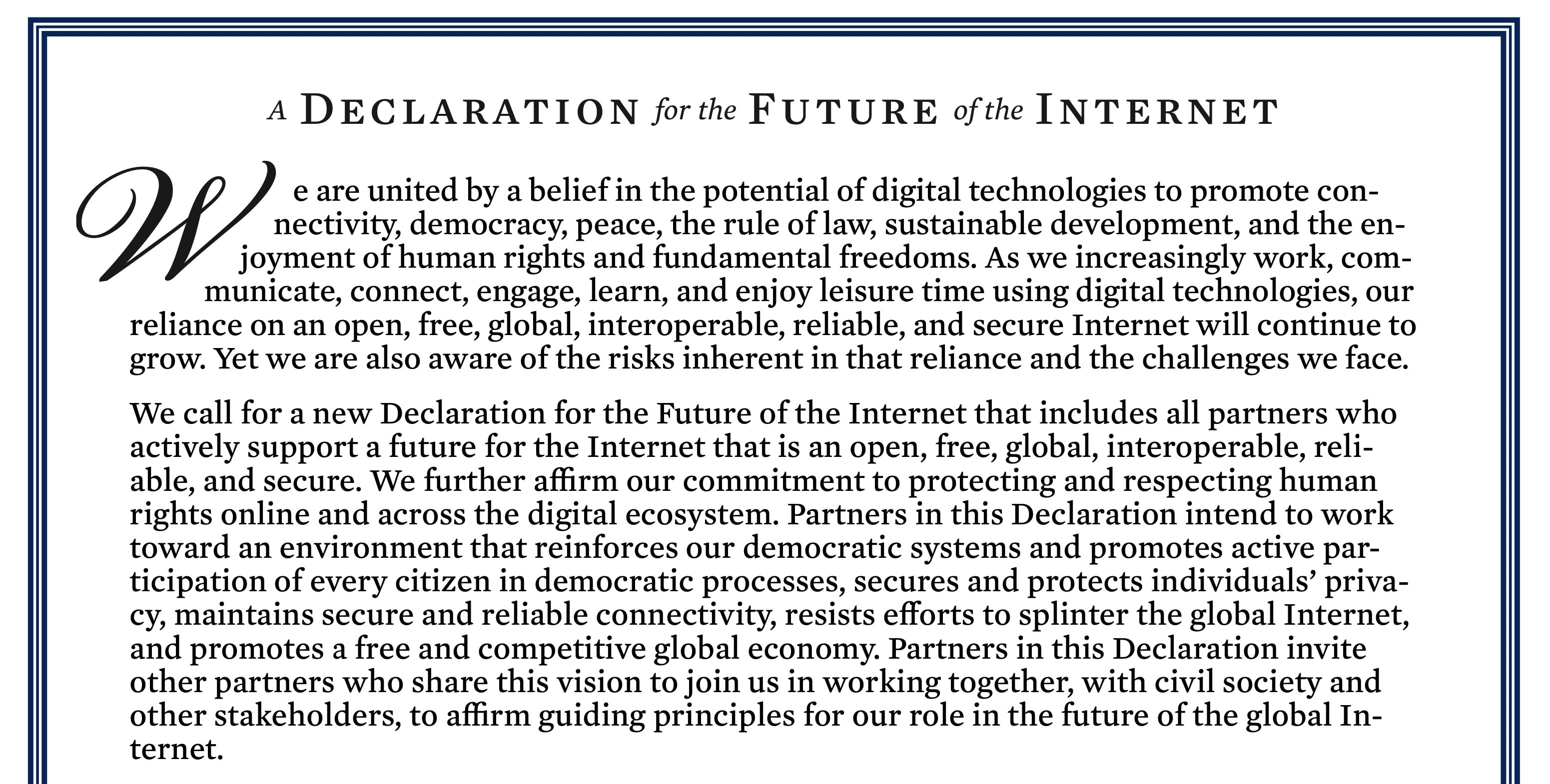The White House said Thursday that the U.S. and 60 partner countries have signed a new pledge to try to ensure the global internet is affordable, maintains a “free flow of information,” and safeguards privacy and human rights.
The document, called the Declaration for the Future of the Internet, requires no specific actions, however. But it does obligate signatories to adhere to certain principles.
U.S. and 60 partner countries sign Declaration for the Future of the Internet
Back in 2014, President Obama hoped to classify the internet as a public utility to protect net neutrality, which was the principle and related regulations directing internet service providers to provide equal access to all, without preference. Apple favored net neutrality. But the FCC repealed it in 2017.
And now the White House has debuted a plan for the future of the Internet that invokes some of the ideas behind net neutrality but does not propose any regulatory action.
The Declaration evolved from a Biden administration effort that featured a previous document that Politico reported on called “The Alliance for the Future of the Internet.” It included some specific guidance on internet regulation and security standards.
“The Internet has been revolutionary,” the Biden administration said in a statement about the new declaration. “It provides unprecedented opportunities for people around the world to connect and to express themselves, and continues to transform the global economy, enabling economic opportunities for billions of people.”
“Yet it has also created serious policy challenges,” the statement goes on to say. “Globally, we are witnessing a trend of rising digital authoritarianism where some states act to repress freedom of expression, censor independent news sites, interfere with elections, promote disinformation, and deny their citizens other human rights.”

Photo: Whitehouse.gov
An ‘open, free, global, interoperable, reliable and secure’ internet
To fight against those wrongs, help people facing barriers to access and protect against cybersecurity threats, the U.S. created the Declaration. The roughly 2,000-words pledge calls for an “open, free, global, interoperable, reliable, and secure” internet.
However, the Declaration doesn’t suggest or require the U.S. or any of the partner countries to take specific actions. The 60 partner countries cover the globe — and most of the alphabet — from Albania to Uruguay.
The White House said the Declaration is a political commitment to “advance a positive vision for the internet and digital technologies” that “reclaims the promise of the internet.”
The White House fact sheet indicated the following principles in the Declaration:
- Protect human rights and fundamental freedoms of all people;
- Promote a global Internet that advances the free flow of information;
- Advance inclusive and affordable connectivity so that all people can benefit from the digital economy;
- Promote trust in the global digital ecosystem, including through protection of privacy; and
- Protect and strengthen the multistakeholder approach to governance that keeps the Internet running for the benefit of all.
“In signing this Declaration, the United States and partners will work together to promote this vision and its principles globally while respecting each other’s regulatory autonomy within our own jurisdictions and in accordance with our respective domestic laws and international legal obligations,” the Biden administration’s statement said.


